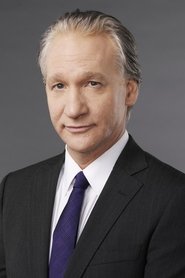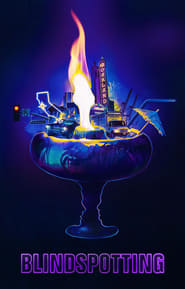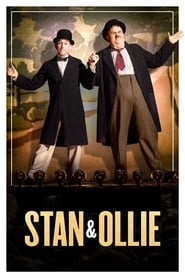If I’m being honest, The Office’s Mindy Kaling has always been an actress I’ve preferred in small doses. Therefore, upon initially viewing the trailer of her upcoming film, Late Night, one which Kaling also penned, my reservations grew with an expectation of too much face-time for the polarizing comedian. However, strong early rumblings surrounding the film forced me to reconsider my tilted assumptions and it resulted in a pleasantly surprising movie experience loaded with novel ideas and staunch creativity.
The legendary Emma Thompson stars as Katherine Newbury, an immeasurably successful Late-Night Talk Show Host with countless Emmy Awards to her resumé despite her and her entire writing staff going through the motions for the past ten years. But when Katherine decides to shake things up by hiring a new female writer to offer a fresh voice, an experience-less do-gooder named Molly (Kaling) becomes the beneficiary of this affirmative-action hire. Yet, things get amplified and the entire late-night team becomes tested when their network head (Amy Ryan) plots to replace Katherine after the season’s end, forcing Molly to quickly learn on the job and help re-brand Katherine’s career.

Late Night’s earnestly original story serves as the foundation to director Nisha Ganatra’s and Mindy Kaling’s critically adored comedy. In fact, Kaling writes herself out of the spotlight in order to let veteran performer Emma Thompson (Sense and Sensibility and Howard’s End) push the needle. Thompson’s onscreen persona, an emotional loner with no true relationship outside of her decades-long marriage, makes for the more interesting character study. Katherine Newbury is a huge celebrity who shields herself from the closest people around her, which makes for an interesting focal point as Katherine’s new annoyingly friendly writer Molly tries desperately to forge a connection. And as these two polar opposites begin warming up to one another, unforeseen conflicts arise and wonderfully shape their budding relationship. Late Night’s humor is evident but by no means overshadows the film’s finely crafted dramatic elements and robustly developed characters. Rather than taking wild, aimless shots with a rapid-fire of jokes, Kaling instead lets the humor naturally fall into place and complement the greater story and her work shines as a result. And while the film’s third act regrettably resolves all of its conflicts with a cheapened ease, Late Night’s well built and sturdy structure helps keep Nisha Ganatra’s effort standing tall by the time the credits roll.
-
 NameEmma ThompsonCharacterKatherine Newbury
NameEmma ThompsonCharacterKatherine Newbury -
 NameMindy KalingCharacterMolly Patel
NameMindy KalingCharacterMolly Patel -
 NameMax CasellaCharacterBurditt
NameMax CasellaCharacterBurditt -
 NameHugh DancyCharacterCharlie Fain
NameHugh DancyCharacterCharlie Fain -
 NameDenis O'HareCharacterBrad
NameDenis O'HareCharacterBrad -
 NameReid ScottCharacterTom Campbell
NameReid ScottCharacterTom Campbell -
 NameAmy RyanCharacterCaroline Morton
NameAmy RyanCharacterCaroline Morton -
 NamePaul Walter HauserCharacterMancusco
NamePaul Walter HauserCharacterMancusco -
 NameJohn EarlyCharacterReynolds
NameJohn EarlyCharacterReynolds -
 NameJohn LithgowCharacterWalter Lovell
NameJohn LithgowCharacterWalter Lovell -
 NameMegalyn EchikunwokeCharacterRobin
NameMegalyn EchikunwokeCharacterRobin -
 NameIke BarinholtzCharacterDaniel Tennant
NameIke BarinholtzCharacterDaniel Tennant -
 NameAnnaleigh AshfordCharacterMimi Mismatch
NameAnnaleigh AshfordCharacterMimi Mismatch -
 NameHalston SageCharacterZoe Martlin
NameHalston SageCharacterZoe Martlin -
 NameMarc KudischCharacterBilly Katsner
NameMarc KudischCharacterBilly Katsner -
 NameSeth MeyersCharacterHimself
NameSeth MeyersCharacterHimself -
 NameBill MaherCharacterHimself
NameBill MaherCharacterHimself -
 NameJake TapperCharacterHimself
NameJake TapperCharacterHimself -
 NameMaria DizziaCharacterJoan
NameMaria DizziaCharacterJoan -
 NameSakina JaffreyCharacterMolly's Mom
NameSakina JaffreyCharacterMolly's Mom -
 NameLuke SlatteryCharacterHayes Campbell
NameLuke SlatteryCharacterHayes Campbell -
 NameBlake DeLongCharacterMcCary
NameBlake DeLongCharacterMcCary -
 NameDavid Neal LevinCharacterPlant Manager
NameDavid Neal LevinCharacterPlant Manager -
 NamePaige GilbertCharacterDee
NamePaige GilbertCharacterDee -
 NameKerry FlanaganCharacterFemale Reporter
NameKerry FlanaganCharacterFemale Reporter -
 NameLucas Caleb RooneyCharacterGabe Eichler
NameLucas Caleb RooneyCharacterGabe Eichler -
 NameRupak GinnCharacterTeacher
NameRupak GinnCharacterTeacher -
 NameGlo TavarezCharacterYoung Woman
NameGlo TavarezCharacterYoung Woman -
 NameJia PatelCharacterPavarti
NameJia PatelCharacterPavarti
-
 NameLesley BarberJobOriginal Music Composer
NameLesley BarberJobOriginal Music Composer -
 NameNisha GanatraJobDirector
NameNisha GanatraJobDirector -
 NameJulie A. BloomJobFirst Assistant Director
NameJulie A. BloomJobFirst Assistant Director -
 NameVincent GiarratanoJobSecond Assistant Director
NameVincent GiarratanoJobSecond Assistant Director -
 NameDavid ScharfJobPost Production Supervisor
NameDavid ScharfJobPost Production Supervisor -
 NameJolian BlevinsJobProduction Supervisor
NameJolian BlevinsJobProduction Supervisor -
 NameChris CenatiempoJobStunt Coordinator
NameChris CenatiempoJobStunt Coordinator -
 NameStarlet JacobsJobArt Direction
NameStarlet JacobsJobArt Direction -
 NameHenriette VittadiniJobSet Decoration
NameHenriette VittadiniJobSet Decoration -
 NameAileen AbercrombieJobAssistant Costume Designer
NameAileen AbercrombieJobAssistant Costume Designer -
 NameEva Z. CabreraJobScript Supervisor
NameEva Z. CabreraJobScript Supervisor -
 NameGwen RoachJobProperty Master
NameGwen RoachJobProperty Master -
 NameEleonora de SimoneJobAssistant Art Director
NameEleonora de SimoneJobAssistant Art Director -
 NameCharity ThomasJobArt Department Coordinator
NameCharity ThomasJobArt Department Coordinator -
 NameMatthew VidalisJobGraphic Designer
NameMatthew VidalisJobGraphic Designer -
 NameEugene HittJobSpecial Effects Coordinator
NameEugene HittJobSpecial Effects Coordinator -
 NameRichard HebrankJobConstruction Coordinator
NameRichard HebrankJobConstruction Coordinator -
 NameKen ShibataJobGaffer
NameKen ShibataJobGaffer -
 NameJustin SituJobRigging Gaffer
NameJustin SituJobRigging Gaffer -
 NameHeather MorrisJobAssociate Producer
NameHeather MorrisJobAssociate Producer -
 NameErika HampsonJobUnit Production Manager
NameErika HampsonJobUnit Production Manager -
 NameKimberly AsaJobAssistant Set Decoration
NameKimberly AsaJobAssistant Set Decoration -
 NameJoe LandryJobSecond Second Assistant Director
NameJoe LandryJobSecond Second Assistant Director -
 NameAnthony PennachioJobAdditional Second Assistant Director
NameAnthony PennachioJobAdditional Second Assistant Director -
 NameGarry PastoreJobLeadman
NameGarry PastoreJobLeadman -
 NameJeff MazollaJobSet Dresser
NameJeff MazollaJobSet Dresser -
 NameMichael DilellaJobSet Dresser
NameMichael DilellaJobSet Dresser -
 NameTom LaVecchiaJobSet Dresser
NameTom LaVecchiaJobSet Dresser -
 NameAngela PersicoJobSet Dresser
NameAngela PersicoJobSet Dresser -
 NameAnthony TaratunioJobSet Dresser
NameAnthony TaratunioJobSet Dresser -
 NameJohn PolsterJobSet Dresser
NameJohn PolsterJobSet Dresser -
 NameChris GanoJobSet Dresser
NameChris GanoJobSet Dresser -
 NameKimberly AsaJobSet Decoration Buyer
NameKimberly AsaJobSet Decoration Buyer -
 NameCharlotte CoxJobArt Department Coordinator
NameCharlotte CoxJobArt Department Coordinator -
 NameJulian J. DelacruzJobCamera Operator
NameJulian J. DelacruzJobCamera Operator -
 NameJulian J. DelacruzJobSteadicam Operator
NameJulian J. DelacruzJobSteadicam Operator -
 NamePedro CorcegaJobFirst Assistant "A" Camera
NamePedro CorcegaJobFirst Assistant "A" Camera -
 NameMatthew MontaltoJobSecond Assistant "A" Camera
NameMatthew MontaltoJobSecond Assistant "A" Camera -
 NameAdriana Brunetto-LipmanJobFirst Assistant "B" Camera
NameAdriana Brunetto-LipmanJobFirst Assistant "B" Camera -
 NameMaria GonzalesJobSecond Assistant "B" Camera
NameMaria GonzalesJobSecond Assistant "B" Camera -
 NameJeff MakarauskasJobCamera Loader
NameJeff MakarauskasJobCamera Loader -
 NameEmily AragonesJobStill Photographer
NameEmily AragonesJobStill Photographer -
 NameEvan DalcherJobBest Boy Electric
NameEvan DalcherJobBest Boy Electric -
 NameTom KerwickJobKey Grip
NameTom KerwickJobKey Grip -
 NameIan O'NeillJobBest Boy Grip
NameIan O'NeillJobBest Boy Grip -
 NameBen KanegsonJobDolly Grip
NameBen KanegsonJobDolly Grip -
 NameShai GoldenbergJobDolly Grip
NameShai GoldenbergJobDolly Grip -
 NameRyan DunneJobGrip
NameRyan DunneJobGrip -
 NameNeal LuberdaJobRigging Grip
NameNeal LuberdaJobRigging Grip -
 NameAllison JacksonJobSound Mixer
NameAllison JacksonJobSound Mixer -
 NameAllison HoweJobBoom Operator
NameAllison HoweJobBoom Operator -
 NameGabriel SandersJobBoom Operator
NameGabriel SandersJobBoom Operator -
 NameJonathan JacksonJobUtility Sound
NameJonathan JacksonJobUtility Sound -
 NameAnna TringaliJobCostume Supervisor
NameAnna TringaliJobCostume Supervisor -
 NameOlivia JanczykJobKey Costumer
NameOlivia JanczykJobKey Costumer -
 NameSara DanglerJobKey Costumer
NameSara DanglerJobKey Costumer -
 NameRandi FeatherstoneJobCostume Coordinator
NameRandi FeatherstoneJobCostume Coordinator -
 NameElizabeth HowellJobTailor
NameElizabeth HowellJobTailor -
 NameJon Can CoskunkasJobTailor
NameJon Can CoskunkasJobTailor -
 NameJon Can CoskunkasJobCostumer
NameJon Can CoskunkasJobCostumer -
 NameLaura CalcagniJobProduction Coordinator
NameLaura CalcagniJobProduction Coordinator -
 NameTiffany Marie WalkerJobAssistant Production Coordinator
NameTiffany Marie WalkerJobAssistant Production Coordinator -
 NameNadine GalloJobProduction Secretary
NameNadine GalloJobProduction Secretary -
 NameMarjorie DurandJobMakeup Department Head
NameMarjorie DurandJobMakeup Department Head -
 NameMilagros Medina-CerdeiraJobKey Makeup Artist
NameMilagros Medina-CerdeiraJobKey Makeup Artist -
 NameKimberly AmackerJobMakeup Artist
NameKimberly AmackerJobMakeup Artist -
 NameJasen Joseph SicaJobHair Department Head
NameJasen Joseph SicaJobHair Department Head -
 NameGary MartoriJobKey Hair Stylist
NameGary MartoriJobKey Hair Stylist -
 NameLisa Renee ThomasJobHairstylist
NameLisa Renee ThomasJobHairstylist -
 NameMichele BakerJobLocation Manager
NameMichele BakerJobLocation Manager -
 NameMatthew CrothamelJobAssistant Location Manager
NameMatthew CrothamelJobAssistant Location Manager -
 NameKate CossolottoJobLocation Coordinator
NameKate CossolottoJobLocation Coordinator -
 NameMariarosa CalderonJobProduction Accountant
NameMariarosa CalderonJobProduction Accountant -
 NameKareem O'NeillJobFirst Assistant Accountant
NameKareem O'NeillJobFirst Assistant Accountant -
 NameVictor A. PinedaJobPayroll Accountant
NameVictor A. PinedaJobPayroll Accountant -
 NameChristian NoeJobCraft Service
NameChristian NoeJobCraft Service -
 NameKimberly GuzmanJobCasting Associate
NameKimberly GuzmanJobCasting Associate -
 NameNoa IsabellaJobCasting Assistant
NameNoa IsabellaJobCasting Assistant -
 NameAnne ReevesJobExtras Casting
NameAnne ReevesJobExtras Casting -
 NameBrad KennyJobExtras Casting
NameBrad KennyJobExtras Casting -
 NameJensine JosephJobExtras Casting Assistant
NameJensine JosephJobExtras Casting Assistant -
 NameJames HarkerssJobTransportation Captain
NameJames HarkerssJobTransportation Captain -
 NameThomas O'ConnorJobTransportation Co-Captain
NameThomas O'ConnorJobTransportation Co-Captain -
 NameKelly BudishJobAssistant Editor
NameKelly BudishJobAssistant Editor -
 NameAsim MatinJobAssistant Editor
NameAsim MatinJobAssistant Editor -
 NameChris PelphreyJobAssistant Editor
NameChris PelphreyJobAssistant Editor -
 NameCharles Martin InouyeJobMusic Editor
NameCharles Martin InouyeJobMusic Editor -
 NameAlice WoodJobMusic Editor
NameAlice WoodJobMusic Editor -
 NameTodd ToonJobSupervising Sound Editor
NameTodd ToonJobSupervising Sound Editor -
 NameGlynna GrimalaJobSupervising Sound Editor
NameGlynna GrimalaJobSupervising Sound Editor -
 NameShane HayesJobDialogue Editor
NameShane HayesJobDialogue Editor -
 NameLuke GibleonJobSound Effects Editor
NameLuke GibleonJobSound Effects Editor -
 NamePernell L. SalinasJobFirst Assistant Sound Editor
NamePernell L. SalinasJobFirst Assistant Sound Editor -
 NameAndy KoyamaJobSound Re-Recording Mixer
NameAndy KoyamaJobSound Re-Recording Mixer -
 NameGabriel J. SerranoJobSound Re-Recording Mixer
NameGabriel J. SerranoJobSound Re-Recording Mixer -
 NameTodd ToonJobSound Re-Recording Mixer
NameTodd ToonJobSound Re-Recording Mixer -
 NameShawn KennellyJobFoley Mixer
NameShawn KennellyJobFoley Mixer -
 NameMelissa KennellyJobFoley Artist
NameMelissa KennellyJobFoley Artist -
 NameVince NicastroJobFoley Artist
NameVince NicastroJobFoley Artist -
 NameChris NavarroJobADR Mixer
NameChris NavarroJobADR Mixer -
 NameJudah GetzJobADR Mixer
NameJudah GetzJobADR Mixer -
 NameDominic BoucherJobADR Mixer
NameDominic BoucherJobADR Mixer -
 NameScott CannizzaroJobADR Mixer
NameScott CannizzaroJobADR Mixer -
 NameKrissopher ChevannesJobADR Mixer
NameKrissopher ChevannesJobADR Mixer -
 NameLesley BarberJobOrchestrator
NameLesley BarberJobOrchestrator -
 NameJames ShearmanJobOrchestrator
NameJames ShearmanJobOrchestrator -
 NameMindy KalingJobScreenplay
NameMindy KalingJobScreenplay -
 NameTory BurchJobThanks
NameTory BurchJobThanks -
 NameEvan JosephJobThanks
NameEvan JosephJobThanks -
 NamePhil NotoJobThanks
NamePhil NotoJobThanks -
 NameRobert SteuerJobThanks
NameRobert SteuerJobThanks -
 NameMaryam KeshavarzJobThanks
NameMaryam KeshavarzJobThanks -
 NameLaura TerrusoJobThanks
NameLaura TerrusoJobThanks -
 NameLorene MachadoJobThanks
NameLorene MachadoJobThanks -
 NameElizabeth SarnoffJobThanks
NameElizabeth SarnoffJobThanks -
 NameJen SmallJobThanks
NameJen SmallJobThanks -
 NameAimee PittaJobThanks
NameAimee PittaJobThanks -
 NameSusan CarnivalJobThanks
NameSusan CarnivalJobThanks -
 NameLaura GordonJobThanks
NameLaura GordonJobThanks -
 NameB.J. NovakJobThanks
NameB.J. NovakJobThanks -
 NameTracey WigfieldJobThanks
NameTracey WigfieldJobThanks -
 NameLang FisherJobThanks
NameLang FisherJobThanks -
 NameMatt WarburtonJobThanks
NameMatt WarburtonJobThanks -
 NameAriel DumasJobThanks
NameAriel DumasJobThanks -
 NameEmmy BlotnickJobThanks
NameEmmy BlotnickJobThanks -
 NameFrank LesserJobThanks
NameFrank LesserJobThanks -
 NameMatt WhitakerJobThanks
NameMatt WhitakerJobThanks -
 NameCharlie GrandyJobThanks
NameCharlie GrandyJobThanks -
 NameClaire ScanlonJobThanks
NameClaire ScanlonJobThanks -
 NameGary RossJobThanks
NameGary RossJobThanks -
 NameDave StassenJobThanks
NameDave StassenJobThanks -
 NameAline Brosh McKennaJobThanks
NameAline Brosh McKennaJobThanks -
 NameStella McCartneyJobThanks
NameStella McCartneyJobThanks -
 NameRob BurnettJobThanks
NameRob BurnettJobThanks -
 NameRupak GinnJobThanks
NameRupak GinnJobThanks -
 NameCarolyn StraussJobThanks
NameCarolyn StraussJobThanks -
 NameAbi WurdemanJobThanks
NameAbi WurdemanJobThanks -
 NameCarol ChrestJobThanks
NameCarol ChrestJobThanks -
 NameAmber RuffinJobThanks
NameAmber RuffinJobThanks -
 NameJenny HagelJobThanks
NameJenny HagelJobThanks -
 NameTricia McAlpinJobThanks
NameTricia McAlpinJobThanks -
 NameDaniel J. GoorJobThanks
NameDaniel J. GoorJobThanks -
 NameDave KingJobThanks
NameDave KingJobThanks -
 NameSonia KharkarJobThanks
NameSonia KharkarJobThanks -
 NameBill DeBlasioJobThanks
NameBill DeBlasioJobThanks -
 NameThom BrowneJobThanks
NameThom BrowneJobThanks -
 NameBrent WhiteJobThanks
NameBrent WhiteJobThanks -
 NameBen BrowningJobProducer
NameBen BrowningJobProducer -
 NameMindy KalingJobProducer
NameMindy KalingJobProducer -
 NameHoward KleinJobProducer
NameHoward KleinJobProducer -
 NameEleanor InfanteJobEditor
NameEleanor InfanteJobEditor -
 NameDavid RogersJobEditor
NameDavid RogersJobEditor -
 NameMaribeth FoxJobCasting
NameMaribeth FoxJobCasting -
 NameElizabeth JonesJobProduction Design
NameElizabeth JonesJobProduction Design -
 NameJillian ApfelbaumJobProducer
NameJillian ApfelbaumJobProducer -
 NameMilan PopelkaJobExecutive Producer
NameMilan PopelkaJobExecutive Producer -
 NameAlison CohenJobExecutive Producer
NameAlison CohenJobExecutive Producer -
 NameMicah GreenJobExecutive Producer
NameMicah GreenJobExecutive Producer -
 NameDaniel SteinmanJobExecutive Producer
NameDaniel SteinmanJobExecutive Producer -
 NameErika HampsonJobCo-Producer
NameErika HampsonJobCo-Producer -
 NameMatthew ClarkJobDirector of Photography
NameMatthew ClarkJobDirector of Photography -
 NameMitchell TraversJobCostume Designer
NameMitchell TraversJobCostume Designer -
 NameLaura RosenthalJobCasting
NameLaura RosenthalJobCasting -
 NameLinda CohenJobMusic Supervisor
NameLinda CohenJobMusic Supervisor -
 NameEdward InzautoJobSet Dresser
NameEdward InzautoJobSet Dresser
-
Trailer
-
Trailer
-
Trailer
-
Clip
-
Clip
-
Clip
-
Clip
-
Clip
-
Teaser
-
Featurette
-
Featurette
-
Featurette
-
Featurette
-
Featurette





























